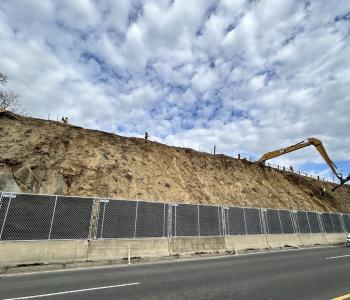Class Action Lawsuit Dismissed
Plaintiffs in a class action lawsuit against the District of Columbia Water and Sewer Authority (WASA) have voluntarily dismissed their case, WASA Board Chairman Glenn S. Gerstell announced today. The suit, originally filed in March 2004, alleged exposure to health risks and property devaluation due to lead levels found in District drinking water.
We are pleased with the outcome of this litigation for two reasons, Gerstell said. First, this is a clear sign that the steps taken by WASA and the Washington Aqueduct water treatment plant are effectively reducing the risk of lead levels in drinking water. And secondly, the closure of this case is good news for WASA ratepayers who will not have to bear the burden of continuing litigation in this matter.
The lawsuit, Amy Harding-Wright, et al., v. District of Columbia Water and Sewer Authority, has, to date, cost the WASA ratepayers more than $1 million to defend.
It has been WASAs position all along that this is a regulatory issue and one that the Authority is committed to aggressively address with good results for our customers and the general public, said WASA General Manager Jerry N. Johnson.
Over the last six months, there has been a positive trend in declining lead levels in District water. In the latest group of tap water samples, test results show 90 percent of the homes tested were below the federal lead action level of 15 ppb (parts per billion), as required under the U.S. Environmental Protection Act (EPA) Lead and Copper Rule. If the tap water samples taken in the second half of 2005 show similar results, District drinking water will be in compliance with EPA regulations.
WASA purchases treated water from the Washington Aqueduct, a division of the Army Corps of Engineers, and distributes it to residential and business customers throughout the District. The decline in lead levels is largely attributed to the addition of orthophosphate by the Aqueduct to inhibit the corrosive action of water of pipes and plumbing fixtures with lead. In addition, WASA has gone beyond the federal requirements for compliance by undertaking a $300 million project to replace all lead service lines on public property by 2010.
In 2004, WASA funded and participated with the District health department in an outreach program to provide blood level screening. Subsequent environmental assessments of homes of children in which elevated blood levels were detected found lead exposure from sources other than drinking water, such as paint and/or soil on the property.
After extensive testing, it has been demonstrated that no relationship was established between elevated lead levels in blood samples and elevated lead levels in District drinking water, Johnson explained.
###







